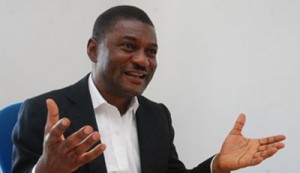Vision 20: 2020 May Likely Fail – NESG
Nigeria is seriously lagging behind its plan to become one of the world’s top 20 economies by 2020, and unless the pace of economic growth is seriously accelerated to cover a huge gap of about $730 billion, the country will miss the 20: 2020 target.
The Director-General Nigerian Economic Summit Group (NESG), Mr Frank Nweke Jr presented this as one of the highpoints at the ongoing Nigeria Economic Summit (NES) in Abuja.
However, the Minister of National Planning, Dr. Shamsuddeen Usman, said the idea of the Vision 20: 2020 was a roadmap towards attaining improvement in Nigerian economy and not a prediction.
He said by 2020 substantial progress would have been made given ongoing reforms, irrespective of Nigeria’s position now.
In addition, President Goodluck Jonathan yesterday swore to make sure transparency and accountability in the oil sector and take legal action those who fraudulently took from the government.
Deregulation, he said, must be followed with views of Nigerians.
Jonathan, who was represented by the Vice-President Namadi Sambo at the 18th Nigerian Economic Summit in Abuja, said, “We must deregulate totally. This is the best answer. We believe that Nigerians will come to realize what we mean by deregulation. We are not in the right economic position. And the best way is to open up and deregulate the oil and gas sector. The blueprint and the transformation agenda of Vision 20: 2020 are living testimony of this collaboration.
“The cost of governance and the Nigerian economic prospect capture the essence of our transformation agenda. The goal is to work on the critical sectors of the economy that will accelerate job and wealth creation in our country. This same mindframe captures our commitment to good governance and efforts to fully realize our huge economic potential.
“In keeping with my promise two years ago. The recommendation of the last economic summit were received and considered by the Federal Executive Council (FEC) as potential imputes into government’s policy framework.”









